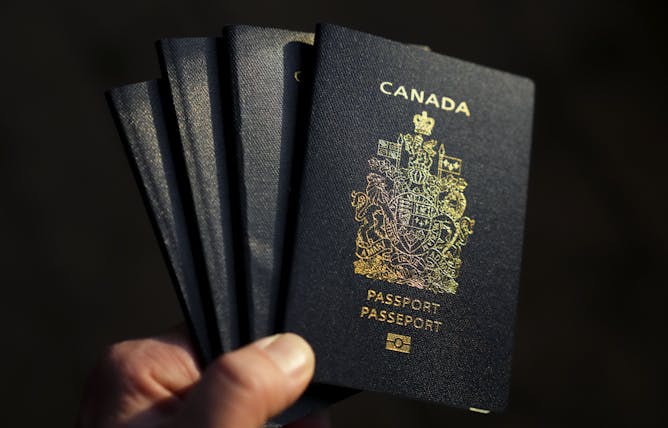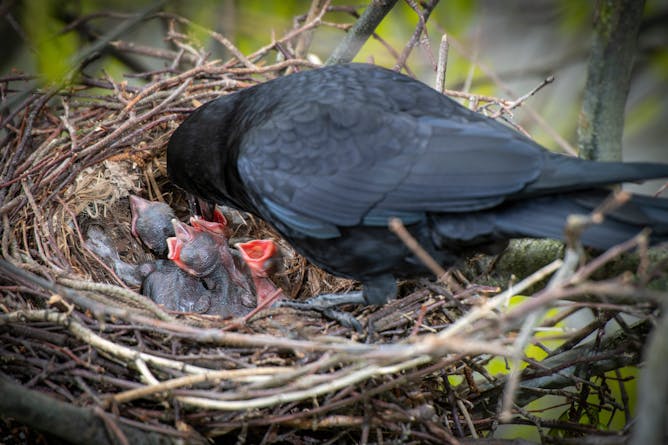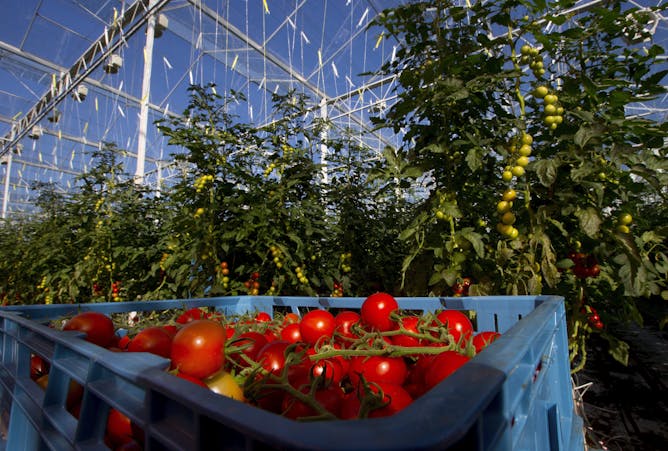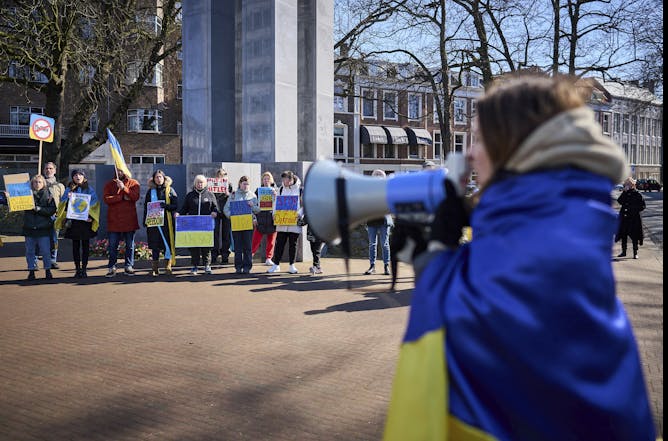|
A recent report from the Institute for Canadian Citizenship indicated that the number of permanent residents becoming Canadian citizens has dropped by 40 per cent over the past 20 years. While individual choices may be a factor behind the numbers, Canada’s long and costly immigration process also plays a significant role.
Today, in The Conversation Canada, John Carlaw from Toronto Metropolitan University highlights the obstacles people face when trying to immigrate to Canada. “Today’s immigrants,” he writes, “face a system of complex chutes and ladders when it comes to their status in Canada. And that can often leave them stuck in an immigration purgatory, far away from pathways to permanent residence, let alone citizenship.
Also today:
All the best.
|

Reports about declining naturalizations belie the historical and political obstacles that prevent many migrants from becoming citizens.
THE CANADIAN PRESS/Sean Kilpatrick
John Carlaw, Toronto Metropolitan University
Today’s immigrants — who mostly come from the Global South — face a system of ever more complex chutes and ladders when it comes to their status in Canada.
|

Corvids like crows and ravens are social and intelligent birds who provide extended care for their young.
(Shutterstock)
Miya Warrington, University of Manitoba; Michael Griesser, University of Konstanz
Parents provide the energy needed for their young to grow large brains. Climate change may negatively affect birds’ brain development as it impacts food supplies.
|

Every child deserves adults in their lives who model the importance of loving human connection and exploration.
(Shutterstock)
Nikki Martyn, University of Guelph-Humber
While educators in Netflix’s ‘Matilda the Musical’ aren’t meant to be blueprints for contemporary teaching, they suggest the powerful ways attentive adults can make a difference in children’s lives.
|

Companies are now pairing data centres with greenhouses to reuse the heat emitted by computing hardware.
(AP Photo/Peter Dejong)
Janna Frenzel, Concordia University; Sarah-Louise Ruder, University of British Columbia
While recuperating heat from data centres to ease greenhouse energy demands is better than letting it go to waste, we must not overlook the complex implications of these two newly merging industries.
|

The Office of the Superintendent of Financial Institutions has released guidelines for financial institutions to address climate change risks.
THE CANADIAN PRESS/Nathan Denette
Robert L. Ascah, University of Alberta
OSFI’s guidelines are a small step towards making financial decision-makers more conscious of their influence on climate outcomes, but there is still work to be done.
|

Une femme enveloppée d'un drapeau ukrainien crie dans un mégaphone lors d'une manifestation devant la Cour pénale internationale à La Haye, aux Pays-Bas, en mars 2022.
(AP Photo/Phil Nijhuis)
James Horncastle, Simon Fraser University
Même s’il est peu probable que Poutine soit un jour jugé par un tribunal, le mandat d’arrêt de la CPI a une réelle valeur. Les actions symboliques peuvent avoir un effet profond sur les États.
|
Health
|
-
Brian King, Penn State; Andrea Rishworth, University of Toronto; Louisa M. Holmes, Penn State; Ruchi Patel, Penn State
Pennsylvania has long had one of the highest death rates from drug overdose in the US. But new studies suggest counties throughout the state have different rates of opioid deaths.
|
|
Politics
|
-
Jon Pike, The Open University
Why some now talk about ‘meaningful’ rather than fair competition in elite sport.
|
|
Science + Tech
|
-
Trevor Ireland, The University of Queensland
The discovery of a key component of RNA in samples from asteroid Ryugu adds weight to the theory that basic organic molecules may have arrived on Earth from outer space.
|
|